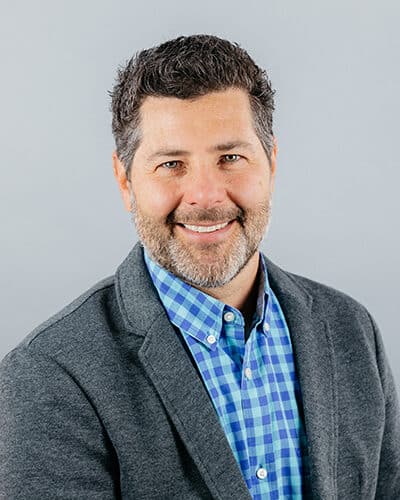Benzene Contaminated Sunscreen
- What is the current status of the sunscreen lawsuits?
- What should plaintiffs’ law firms know about the impending influx of sunscreen mass tort litigation?
- Will this lead to mass tort litigation against sunscreen manufacturers?
- Which sunscreens are being recalled?
- Why are sunscreens being recalled?
- Valisure Findings Leading to Sunscreen Recalls
- Sunscreen Manufacturer Recalls Due to Benzene
- How can I find more clients for sunscreen mass tort litigation?
A recent study by an online pharmaceutical company found that many popular sunscreen and after-sun care products contain a cancer-causing chemical called benzene. The findings alarmed consumers all over the country. As a result of the detection of benzene in many sunscreen products, Johnson & Johnson recently issued recalls for five of its popular sunscreen products. The recent revelation that a known carcinogen is an ingredient in many popular sunscreen products is likely to spur mass tort litigation for product liability throughout the country.
What is the current status of the sunscreen lawsuits?
Plaintiffs are filing sunscreen lawsuits throughout the U.S. after a study showed that benzene is an ingredient in many popular sun care products.
A federal class action lawsuit was recently filed against Edgewell Personal Care Company in the federal court of the United States District Court for the Eastern District of New York. The consumer class action alleges that Edgewell’s Banana Boat Spray sunscreens pose significant health risks to sunscreen users because of the presence of benzene in their spray products. The central claim of the class suit is that Edgewell failed to disclose benzene as one of the ingredients in their consumer products.
In Chabla v. Edgewell Personal Care Company, the class action plaintiff seeks, on behalf of himself and others in the class, $5 million in damages. Chabla accuses Edgewell of misleading its consumers by failing to list benzene as one of its ingredients. The lawsuit further alleges that Edgewell marketed its SPF sunscreen products as safe even though it knew that benzene skin absorption was a major risk factor for cancer development.
The class action complaint seeks certification as a nationwide class and a New York subclass rather than having a large number of plaintiffs each file individual cases for compensation. The benzene sunscreen lawsuit alleges the following claims:
- Deceptive acts or practices under New York’s General Business Law Section 349
- False advertising under New York’s General Business Law Section 350
- Breach of express warranty under numerous states’ warranty laws
- Breach of implied warranty of merchantability
- Fraudulent concealment
- Unjust enrichment
The class seeks damages in the form of injunctive relief and compensation, including treble damages (three times the amount of actual financial losses suffered), punitive damages (intended to punish the wrongdoer for their willful or reckless behavior and deter future wrongdoing), statutory damages, and attorneys’ fees and costs. In addition, the class action also seeks medical monitoring of the class members due to their exposure to varying benzene amounts.
Another similar class action against Edgewell was recently filed in the Southern District of Florida. In Zapatero v. Energizer Holdings, LLC, the class action plaintiffs allege that the company’s failure to disclose benzene as an ingredient in their products violated federal and California state laws.
Specifically, the lawsuit alleges that when the putative plaintiff bought the sunscreen products, she didn’t know they contained benzene. She assumed the labeling on the sunscreen packaging was accurate and claimed that she wouldn’t have bought the product if she’d known it contained a carcinogen. Thus, Zapatero suffered injury by purchasing a product with a known carcinogen in it.
The lawsuit proposes a Florida-only class action and a nationwide class action and contains the following claims: violation of Florida’s Unfair and Deceptive Trade Practices Act and unjust enrichment.
For settlement, the plaintiff seeks, among other things, an order enjoining the defendants from selling Banana Boat products, restitution, and damages to restore the plaintiff’s funds for buying the product.
What should plaintiffs' law firms know about the impending influx of sunscreen mass tort litigation?
Thousands of potential plaintiffs will be looking to file personal injury claims in the coming days, weeks, months, and years. Benzene is an active ingredient in hundreds of popular sunscreens and after-sun care products. Plaintiffs will allege that they would never have purchased the sunscreen products if they’d known they contained toxic chemicals such as benzene.
News stories of benzene and skin cancer are causing justified alarm among consumers, who have been slathering these sunscreen products on their skin for years. Many plaintiffs are already filing lawsuits because of the benzene crisis, and more plaintiffs will continue to file lawsuits as the story unfolds, potentially leading to multi-district litigation (MDL).
Personal injury lawyers must reach out to these injured parties to demonstrate the value of your legal advice and provide them with important information they need to pursue a claim. CAMG, Inc. is the nation’s largest data-driven marketing firm that caters exclusively to law firms. We use effective data-focused marketing, digital tools, and aids to help you reach the broadest target audience possible.
Our staff can help your firm contact and notify thousands of consumers all over the country about their potential claims with sunscreen products containing benzene.
Contact CAMG now to learn how we can help you with your consumer law firm and attorney marketing needs.
Will this lead to mass tort litigation against sunscreen manufacturers?
The presence of the chemical benzene in hundreds of sunscreen products is likely to lead to a mass tort lawsuit. Plaintiffs are basing their claims in sunscreen class actions on fraudulent and misleading representations by sunscreen manufacturers. Most plaintiffs will likely take legal action to allege that sunscreen manufacturers put benzene in their products and failed to disclose this and the accompanying risk to consumers. Consumers will argue that they wouldn’t have purchased the products if they’d known they contained benzene.
Anyone who lathers sunscreen on their body certainly has the right to know that the product contains a chemical that can lead to cancer development, especially since using sunscreen is typically an attempt to prevent a type of cancer. The recent news of benzene in many popular sunscreens indicates the expectation of mass tort lawsuits alleging state-level claims for unfair and deceptive trade practices, false advertising, breach of express and implied warranty, unjust enrichment, and more.
Mass tort litigation is more effective than individual litigation in these scenarios for several reasons. Each individual claim may not be worth very much, so many consumers will choose not to hire a lawyer and sue individually. For people who aren’t cancer or wrongful death victims, their only losses may be purchasing the product.
Class certification is also easy in these types of product liability cases because the damages for most plaintiffs—the product’s price—will be the same. If a class action is filed, plaintiffs can easily join the class and let the class action attorneys pursue their claims on their behalf.
Which sunscreens are being recalled?
Many sunscreens manufactured by the Johnson & Johnson company, which owns both Neutrogena Corp. and Aveeno sun care products, have been recalled. Also, CVS pharmacy recalled two of its store products.
Why are sunscreens being recalled?
Companies are recalling many sunscreens because, in May 2021, Valisure announced that many popular sunscreen and after-sun care products, including those touted as “dermatologist recommended,” contain the carcinogen benzene as an ingredient. These companies are only allowed to have a safe level of benzene contained in their consumer products if there’s a presence of benzene at all.
What is benzene?
Benzene is a highly flammable, light-yellow liquid with a sweet smell. Its molecular formula is C6H6. Benzene is a solvent used as the primary starting material for chemicals to produce plastics, resins, synthetic fibers, dyes, drugs, detergents, and pesticides. It’s also a natural part of crude oil, gasoline, and cigarette smoke.
Benzene is a recognized and known human hazard carcinogen with no safe levels for human exposure. It’s known to harm bone marrow, and it can cause blood cancers such as leukemia, particularly acute myelogenous leukemia, known as AML. Research also links benzene exposure to chronic lymphocytic leukemia (CLL), acute lymphocytic leukemia (ALL), multiple myeloma, and non-Hodgkin lymphoma.
Because of its known toxicity, benzene has limited consumer use in medical and household products.
Are there long-term health effects of benzene exposure?
According to the Centers for Disease Control and Prevention (CDC), the long-term health effects of benzene exposure involve blood contamination. Any level of exposure to benzene over prolonged periods can lead to various cancers, including leukemia, by affecting the body’s cells so that they don’t work correctly.
For instance, benzene can cause bone marrow to create too few red blood cells, resulting in anemia. In addition, women who breathed in high levels of benzene over many months had irregular menstrual periods and smaller ovaries. In animal studies, long-term health effects include low birth weights, delayed bone formation, and bone marrow damage.
Does benzene cause cancer?
Yes, it can. The U.S. Department of Health and Human Services, the International Agency for Research on Cancer, and the Environmental Protection Agency have all stated that benzene causes cancer in humans. Similarly, the National Institute for Occupational Safety and Health determined that benzene is a “potential occupational carcinogen as defined by the OSHA carcinogen policy.”
Valisure Findings Leading to Sunscreen Recalls
The Federal Drug Administration (FDA) regulates sun products as drugs. The FDA permits traces of benzene on rare occasions when its use is unavoidable in manufacturing a drug with significant therapeutic advances. In that case, the federal agency restricts the concentrations of benzene in the product.
In 2020, the independent lab Valisure, LLC, an online pharmacy that tests medications for safety, conducted a study on various batches of sunscreen products to determine whether they contained detectable levels of benzene.
In the study, Valisure found that many sunscreen products contain no benzene, which means benzene is avoidable in manufacturing sunscreens. In other words, sunscreens can have therapeutic advances without benzene as an ingredient. Therefore, Valisure argued that, according to FDA regulations, no level of benzene is acceptable in any sunscreen product.
Valisure found that many sunscreen products and after-sun care products contain benzene levels that far exceed the FDA’s restricted amounts. In fact, the Valisure study showed that of the almost 300 sunscreen products tested, nearly 30 percent of those contained benzene.
In May 2021, based on the Valisure study, Valisure, LLC submitted a citizen petition on Sunscreen and After-Sun Care Products, urging the recall of numerous sunscreen products due to the levels of benzene found in the products and asking the FDA to more precisely define the limits for benzene in drug and cosmetic products.
Sunscreen Manufacturer Recalls Due to Benzene
Since Valisure released its study, many companies have been forced to recall their sunscreen products. Two companies that recalled their sun care products because of benzene found in their formulations are Johnson & Johnson and CVS.
Johnson & Johnson (J&J)
In July 2021, J&J recalled a range of Neutrogena sunscreen products (Beach Defense, Cool Dry Sport, Invisible Daily, and Ultra Sheer) and a sunscreen product from Aveeno (Protect + Refresh). The company stated that J&J decided to voluntarily recall its products because they detected low levels of benzene and were, therefore, exercising “an abundance of caution.”
After J&J recalled the five sunscreens, affected consumers filed a class action lawsuit against the big pharma brand on August 2, 2021, in the United States District Court for the District of New Jersey. The class action seeks injunctive relief, preventing J&J from causing further harm to consumers using its products and economic damages for restitution due to Johnson & Johnson’s ill-gotten gains.
CVS
In July 2021, pharmacy chains such as CVS, Walgreens, and Walmart began pulling the affected Johnson & Johnson products from their store sites after the major pharmaceutical company announced the recall. In addition, CVS pharmacy recalled two of its own products: CVS Health After Sun Aloe Vera and CVS Health After Sun Aloe Vera Spray.
How can I find more clients for sunscreen mass tort litigation?
Finding clients for sunscreen mass tort litigation can be a difficult task. You want to find quality leads and be able to show them the value you can provide. Our team of professionals at CAMG can help you tailor your marketing efforts and improve your lead generation and sales processes to obtain desired outcomes that boost your firm’s bottom line.
Contact us today to understand how we can help you and your law firm with sunscreen mass tort litigation.
CAMG has thousands of spots and infomercials that can be branded for your firm. Reach out to us for the latest creative offline and online examples*.
*Examples shown are not always current examples.
Request Samples
* These fields are required.

Is your firm in the Top 3 of Google Search?

CAMG Ethics White Paper
Legal Areas
Are you looking for data-driven marketing for your law firm?
I have worked with CAMG for years. Not only are they great at delivering, but they are great people to work with!

CAMG is always accommodating and willing to work in a way that supports your office as an extension of your team.

Steve Nober and the team at CAMG are responsive, ethical, talented, reasonably priced, and easy to work with!

If you are looking for professional, hardworking people who produce great results and then take you out for a nice dinner, look no further than CAMG


THE NATION’S LARGEST FULLY INTEGRATED
Marketing Agency Dedicated to Law Firms
- Television
- Radio
- Public Relations
- Medical Record Retrieval & Review
- Search Engine Optimization
- Paid Digital
- Out of Home
- Intake & Contracting Services
